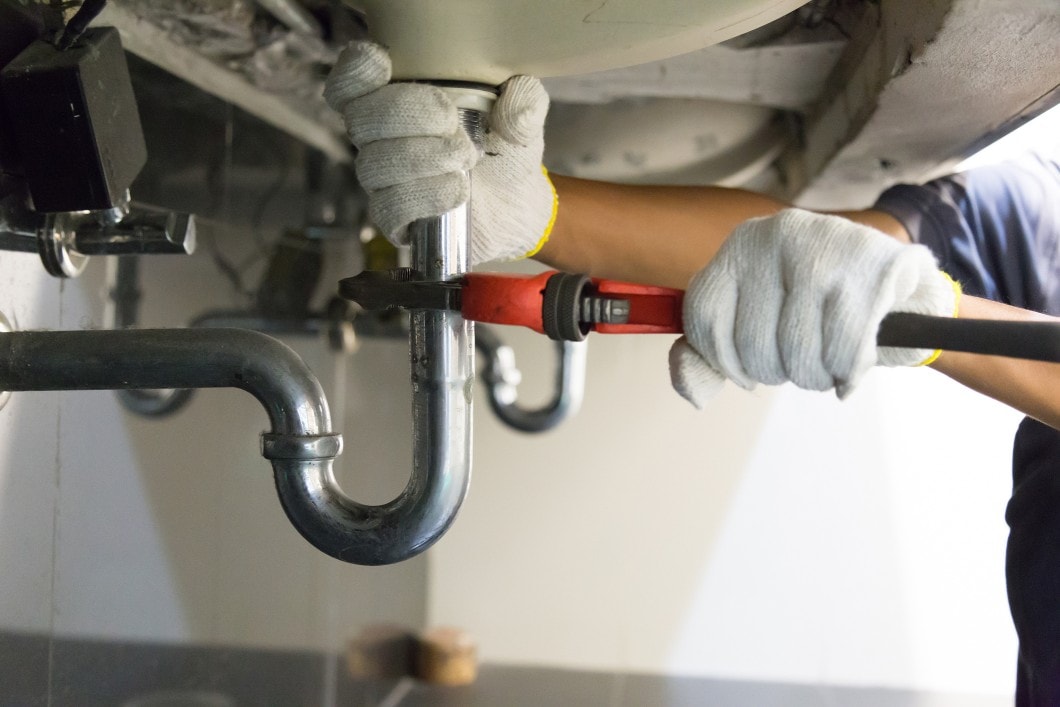How to Maintain Pipework
When it comes to the pipework in your home, there are lots of jobs that require the help of a professional plumber. However, there are many things you can do to keep your pipework healthy and therefore reduce the need for an expensive callout.
We’re going to look at some of the pipe maintenance procedures anyone can undertake, even if they’re not a DIY whizz. We can also help by providing some of the equipment you might need.
Save yourself a heap of money, time, and effort by performing some simple maintenance tasks.
Plumbing Maintenance Jobs You Can Do Yourself
Here are some preventative maintenance tips you can use to avoid common plumbing problems such as broken pipes, clogged toilets, blocked sinks, and leaky faucets.
Understand how your plumbing and water systems work 
One of the most important things you can do to prevent costly plumbing repairs is to understand everything about your water system and how it works. There are lots of things in your home that use water. For example, sinks in the kitchen, bathroom, and utility room, appliances such as the washing machine and waste disposal, showers, water heaters, and toilets, to name just a few. Knowing how to maintain a pipe will help to reduce the risk of plumbing problems getting out of hand.
Fix leaking showerheads and faucets
You can waste a bucket load of money if you’ve got dripping faucets. If you just leave it and don’t attempt to fix it, the problem will worsen over time and lead to water damage.
Always check your faucets regularly and fix any problems immediately. The best places to check are underneath the sink for drips or stains when the water is running. Check the handles when they are in the off position to make sure there are no water drips.
Unclog drains
If your drains are running slower than usual, you may have a problem with clogging. You can clear the issue before it gets to be a serious issue by flushing the drain with a solution of hot water and vinegar. Do this every couple of months, and it should keep your drains flowing.
Regularly check for water leak
Get into the habit of checking exposed appliances and pipes for water leaks. Visible signs include water stains on the ceilings and walls or puddles of water. Also, check for mildew. You can limit any damage, should a leak occur, if you install a tray to catch any drips, underneath your washing machine and water heater.
Prevent freezing pipes
Do temperatures drop below freezing where you live? Low temperatures can be a problem for your pipework. When they freeze, they could burst. If this happens, you’ll be faced with the cost of fixing the pipework, installing new pipework, or the cost of repairs. If any water has leaked into your property, this could cause a significant amount of damage.
You can easily prevent a problem of this kind. Lag your pipes, and it’ll stop them freezing when the temperatures drop.
Fix leaky toilets
Several things can lead to a leaky toilet. There might be a broken seal around the valve seat. The result will be a toilet that runs even when it’s not flushed. Another cause could be gunk around the flapper and valve seat. The gunk stops the flapper from sealing correctly, and the water will continue to run. There could also be a problem with the tank stopper or handle. Any of these problems can be fixed quickly and at little cost.
Watch what you pour or flush down the drain
If a clogged sink is a common problem, you might want to think about what you’re flushing down the drain. One of the easiest ways to prevent a blocked drain is to be vigilant with what you pour or flush down them. The only thing you should flush down the toilet is human waste and toilet paper. Never pour anything reactive down the drain. A plug hole screen is a good idea because it prevents hair and food from getting into the pipes and blocking them.
If you have a problem with a blocked drain or clogged sink, we have equipment that can help you clear the issue. We have a drain cleaning range that includes drain rods, drain snake cleaner, drain bag, drain plugs, and more.
Check water pressures
Use a pressure gauge to test the water pressure coming out of your showerheads and faucets. PSM offers a range of different pressure testers.
Remove the sediment
Drain your water heater twice a year. A sediment buildup makes your water heater less effective. You can improve your shower head’s water pressure by removing it and cleaning out any accumulated sediment.
We are proud to offer quality boiler descalers.
Here at PSM Hire, we believe in the value of prevention. We aim to provide the ideal solutions for all our customers. If you need advice or guidance, don’t hesitate to get in touch today.
